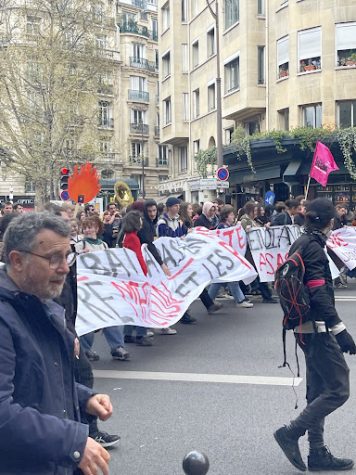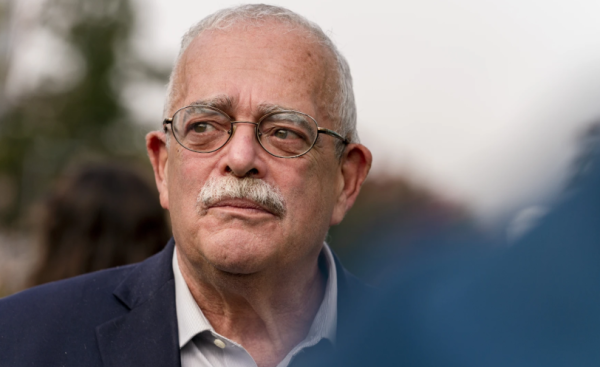France’s protests from the eyes of a Seahawk

Photo courtesy of Quentin Priolet
South Lakes senior Quentin Priolet visited France after French President Emanuel Macron raised the retirement age to 64, sparking mass protests across France.
Large demonstrations have been occurring throughout France this year opposing the pension reform. The changes raised the right to retire with full pension from 62 to 64. Macron claimed that this change was necessary to “ensure the balance of [France’s] system for years and decades to come,” adding that it would pass down a “fair and durable social model.”
Quentin Priolet visited his family in France over spring break, and he participated in one of the protests. In an interview about his experience, he clarified that while people in France opposed the retirement age change, “they were more upset that Macron didn’t go through Parliament.”
Instead of sending the proposed legislation through parliament, Macron used Article 49.3 of the French Constitution allowing him to pass the law without a vote, a process similar to an executive order in the United States. Within 24 hours after the use of this constitutional power, lawmakers have the option to call for a vote of no-confidence. Macron’s government survived the no-confidence vote by 9 votes, which was expected because if the vote had passed, the National Assembly would be required to resign and hold new elections.

Lawmakers who were present while the Prime Minister of France, Elisabeth Borne, announced that there would be no vote, demonstrated their disapproval by booing and loudly singing the national anthem of France, the Marseillaise, in an attempt to stop her from speaking.
Quentin mirrors the frustration of the lawmakers. “It’s a democracy, Macron should not be able to do whatever he wants.”
Leader of the La France Insoumise Party, Jean-Luc Melenchon, also expressed his displeasure toward the way Macron pushed the change through, stating, “The council is more attentive to the needs of the presidential monarchy than to those of the sovereign people.”
The new law has fueled protesters, many of whom have been attending protests for several months. Even before the legislation became law, the protests caused some issues such as causing popular tourist sites like the Louvre and the Eiffel Tower to temporarily close.
Quentin, who was there just before the pension requirements became law, noted how attending one of the large protests made him realize that people can “fight for [their] rights and make an impactful difference,” adding that “the protests aren’t just a one-time thing. There are several every week.”
A recent protest occurred in Ganges, France while Macron was visiting a school in an attempt to promote his education policies. When he arrived the power went out, something that the general confederation of Labor (CGT) claimed was part of the protests.
Another protest took place in Paris, following the new law, at the Gare de Lyon train station and other disruptions to train services occurred in the city of Lille and other suburban locations. The head of the Sud Rail Union, Fabien Villedieu, informed Associated Press “we want to show that the mobilization continues.”
Quentin stated that “while the majority of the protesters demonstrate peacefully, there are a few people that stand out and ruin it for everyone,” adding that, “the news tends to focus only on the violence.”
Some of the more violent incidents have led to clashes with the police, shedding light on issues of police brutality. Quentin was warned by family members to avoid interacting with any of the police present.
Despite the protests showing no signs of stopping and his approval ratings at all time lows, Macron remains confident that he did what was best for the country.

Co-Editor in Chief Heidi Gilman is a Senior at South Lakes, and is excited to continue her journey working for the Sentinel. She loves to swim and is a...

















